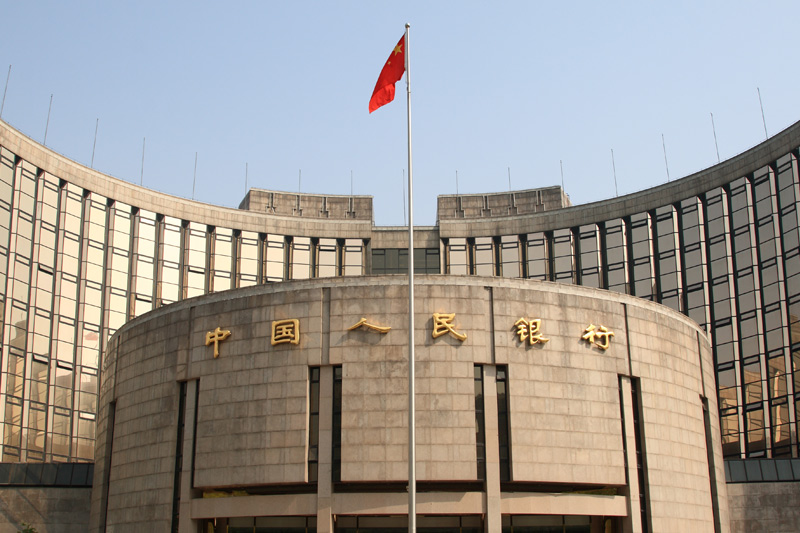(Bloomberg) -- China should learn from Japan in the 1980s, and never allow a trade war to become a currency war, says Sheng Songcheng, a senior adviser to the People’s Bank of China.
The current trade spat between the two biggest economies is reminiscent of trade tensions between Japan and the U.S. in the 1980s, said Sheng, former head of the central bank’s statistics and analysis department.
The comments echo those from former Japanese central banker Kazumasa Iwata, who said on Wednesday that China should be careful on the exchange rate issue. Japan signed the multilateral 1985 Plaza Accord to let the dollar weaken, but its exporters were hurt after the yen strengthened far more than anticipated, according to Iwata, who was a senior official at the time.
That’s a different situation than the one China faces now, which is whether it should unilaterally devalue its currency as a tool in a trade dispute with the U.S. But the warning of Sheng and Iwata is the same - don’t mix trade policy with currency or monetary policies.
“Trade is trade, and it would be stupid to have a currency war which would make everybody around the world unhappy,” Sheng said in an interview in Boao, China, adding that a stable currency is better for China’s plan to upgrade its industrial base.
The tit-for-tat tariff threats from China and President Donald Trump whipsawed markets last week, before the conciliatory tone of President Xi Jinping’s pledges to open up sectors such as banking and automobiles on Tuesday eased tensions.
New central bank chief Yi Gang announced fresh details of that deregulation on Wednesday, including lifting limits on foreign insurers, expanding daily quotas for the Shanghai-Hong Kong stock connect, and easing caps on foreign ownership of securities companies.
Here are edited excerpts of the conversation:
Question:
Is China’s move toward financial opening a tactic to counter the U.S. on trade?
Answer:
The opening-up of the financial sector isn’t just leverage that can be used in negotiations with Trump, but also something China itself needs. To further liberalize financial markets for both foreign and private investors helps break monopolies in the sector, and will boost direct financing and help reduce leverage ratios.
The insurance sector will see a boom, as was highlighted in Xi’s speech. The market has huge potential, and local players shouldn’t be afraid of foreign competitors. Competition can help strengthen the industry.
Question:
The broad M2 money supply has seen record low growth, while aggregate financing is on a relatively stable growth trajectory. Why is this, and will M2 growth continue to slow this year?
Answer:
M2 and aggregate financing are two sides of a coin, and their growth had followed a similar trend until October 2016, when the gap between them started to widen. The reason for that is deleveraging.
As the deleveraging campaign progresses, correlation between M2 and the real economy will be stronger. That’s to say M2 will reflect more of money going into the real economy. M2 growth will likely pick up this year from last year’s record low of 8.1 percent, as government support for the real economy won’t be cut and the marginal effect of the deleveraging campaign will be smaller.
Meanwhile, monetary policy can’t be too tight as fiscal policy is actually not becoming any more proactive, as can be seen from the deficit ratio cuts and tighter supervision of local government financing. The divergence in the growth of M2 and aggregate financing will gradually shrink.
Question:
Is there room to raise interest rates this year?
Answer:
The PBOC faces a dilemma of whether to move deposit and loan benchmark interest rates. It has to think about the real economy and also needs to consider the commercial banks that were hit hard by the new asset-management rules. It’s actually a good time to facilitate the market liberalization of interest rates. Let banks decide pricing and let prices play a decisive role. Meanwhile, there’s also no need for to raise interest rates to push up the exchange rates for its currency.
Question:
What impact will any China-U.S. trade war have on the yuan? Will China devalue its currency?
Answer:
China should learn from the lesson of Japan in 1980s, and not let the trade war become a currency war. China shouldn’t devalue its currency, nor should it allow yuan rates to rise significantly. We should keep the yuan basically stable around the market equilibrium level.
Devaluing the yuan will cause many problems, and losses will outweigh gains. Capital outflow pressures will rise and it will further escalate trade disputes. Also, net exports make only a limited contribution to economic expansion nowadays, and there’s no need to depreciate the yuan to boost exports in order to push up economic growth. In the short term, that might give exporters pricing advantages, but long term it will impede China’s industrial upgrade as it could protect outdated capacity.
Also letting the yuan appreciate massively won’t win praise from the U.S., and it’ll definitely be detrimental to China’s economy. Just think about what happened to Japan after the Plaza Accord.
To contact Bloomberg News staff for this story: Heng Xie in Beijing at hxie34@bloomberg.net, Miao Han in Beijing at mhan22@bloomberg.net.
To contact the editors responsible for this story: Jeffrey Black at jblack25@bloomberg.net, James Mayger, Jeff Kearns
©2018 Bloomberg L.P.
